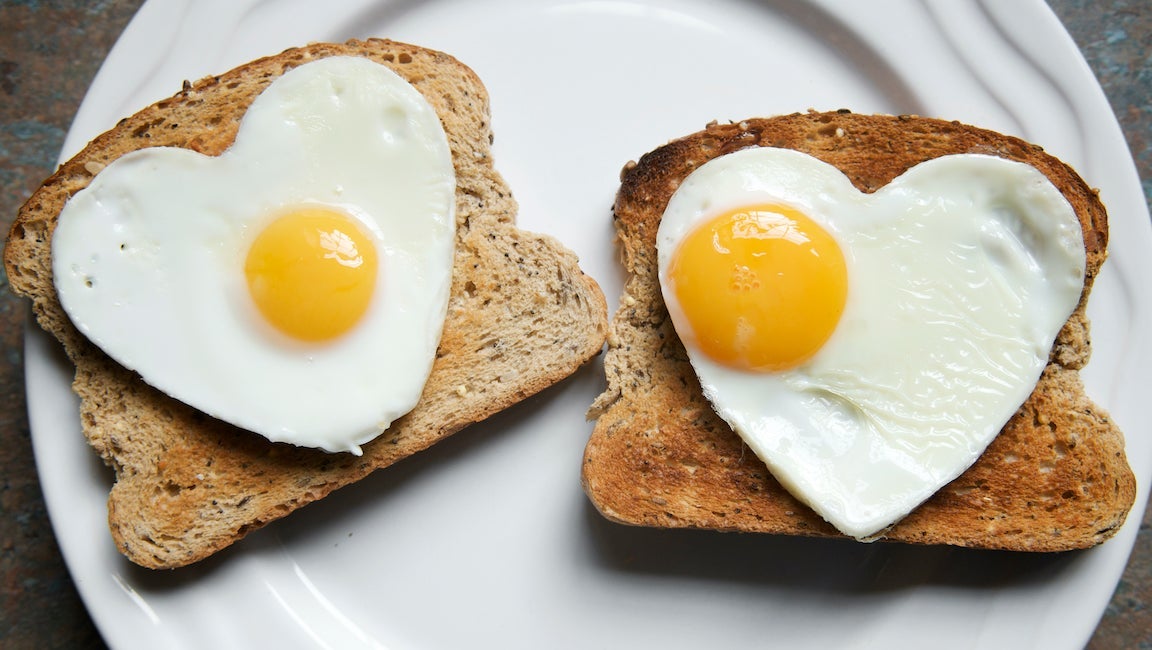You may have heard that snacking after dinner is unnecessary and will only lead to weight gain. But, there’s another side of the story we’re not used to hearing — there may be a performance benefit. The caveat is that you must include adequate protein in that snack.
As an intuitive eating and sports nutrition dietitian, I’ve always seen major holes in these arguments — the most obvious being that foods don’t suddenly increase in calories after dinner, and your body does use energy while you’re sleeping. However, there is now recent research showing that eating protein before bed can actually benefit your training and physique goals. While this is true for various types of physical activity, I’ll focus on endurance athletes like runners.
We need protein for muscle and tissue growth and maintenance, but protein also has many other functions. Proteins also make up hormones and enzymes in the body, provide physical structure, help with immunity, nutrient transfer and more.
With so many roles, you can imagine why getting enough protein is important. But, what about protein before bed, specifically?
Protein Before Bed Supports Muscle Growth

Ingesting protein through food increases muscle protein synthesis. When dietary protein is broken down through digestion, it supplies amino acids, the building blocks of protein, to muscles in the body to support cell turnover and growth.
The best thing you can do to increase muscle protein synthesis while you’re sleeping is to minimize the window that your body is fasting overnight. The most practical way to do this? Eat protein before you go to bed.
While you sleep, protein is effectively digested and absorbed, which can increase muscle protein synthesis up to 22% and improve whole body protein balance during post-exercise overnight recovery.
Protein ingestion before sleep has also been suggested to be an effective nutritional strategy to preserve muscle mass in the elderly population, especially when combined with physical activity and muscle contraction.
Protein Before Bed Positively Influences BMR the Next Morning
There is a false belief that your body stops burning calories during the night. On the flip side, your basal metabolic rate (BMR), which is responsible for the majority of calories you burn each day, is still responsible for keeping your body functioning while you sleep, which includes keeping your heart pumping, lungs breathing and more. Furthermore, weight maintenance is much more complicated than simply calories in vs. calories out. Our hormones, stress levels, nutrient balance and more also play in to the equation.
Pre-sleep feeding studies have shown that resting metabolic rate the following morning was increased or unchanged after the consumption of low-calorie, protein-dense foods before bed. Protein-rich foods bump up our metabolism slightly more than other macronutrients, and may also aid in fat oxidation.
Provides An Additional Feeding Window
Runners burn through calories quickly, meaning we need enough calories and energy to sufficiently and adequately power our training as well as our daily activities of life. To better support bone and muscle health, increased protein needs go along with increased calorie needs.
Most endurance athletes should be consuming 1.2–1.4 g/kg of body weight of protein per day, which falls in the range of 80–100 grams of protein daily for many athletes. With work and life commitments, on-the-go meals and an overall emphasis on carbohydrates, eating sufficient protein may not be a priority for runners and can easily fall to the wayside. By adding another feeding opportunity before bed, you are more likely to get all of the nutrients your body needs for performance and recovery.
Improved Recovery and Performance

As earlier stated, consuming protein before bed helps to increase muscle protein synthesis overnight. More efficient protein synthesis can help improve muscle strength, and thereby reduce the risk of injury. Protein can also help improve recovery, as a night-time supply of nutrients for overnight recovery have been suggested to support muscle reconditioning and improve physical performance.
There’s Not Much to Lose
In short, consuming protein before bed after a typical day of eating does not translate to increased weight gain. Research has also shown that your metabolic rate may increase, or at worst, stay the same.
If you suffer from indigestion or have a sensitive stomach, choosing protein wisely can still be a prudent choice. Eating protein before sleep also has no effect on how fast you fall asleep, your sleep quality, or your appetite the next morning.
Most of the research supports a moderate protein-based, low-calorie snack, usually amounting to 20–30 g of protein and about 200 calories. Both whey and casein protein have shown similar benefits. This could look like a protein shake, egg white omelet, yogurt parfait, or deli meat. With the above purported benefits on the table, it is a strategy worth at least giving a try.
—
Sarah Schlichter, MPH, RDN is a registered dietitian based in the Washington, DC area. She helps to fuel runners without strict dieting. Sarah is also a nutrition consultant and writes the blog, Bucket List Tummy, sharing nutrition posts, healthy family-friendly recipes and running tips Sarah also co-hosts the Nail Your Nutrition Podcast, focused around evidenced-based nutrition tips for athletes.

